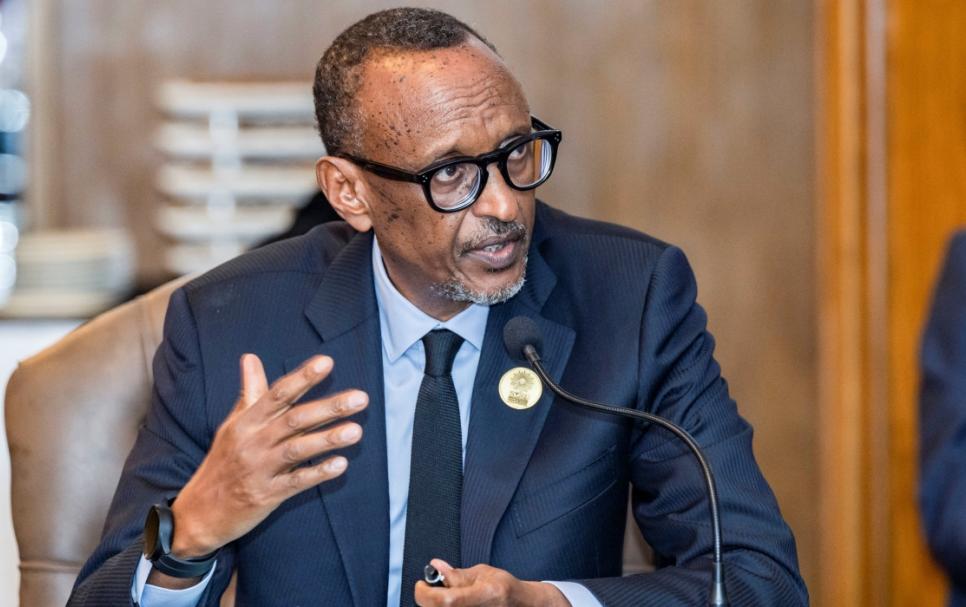Kagame’s Message at Kwibuka 31: Strength Born from Suffering

Kigali, Rwanda – During the 31st annual commemoration of the 1994 Genocide against the Tutsi, President Paul Kagame delivered a powerful and emotionally charged address, emphasizing Rwanda’s resilience and unwavering commitment to protect its sovereignty and people against any future threats.
This year’s commemoration, known as Kwibuka 31—which means "to remember" in Kinyarwanda—carries the theme “Remember – Unite – Renew.” The theme encapsulates Rwanda’s continued journey from deep national trauma toward unity, healing, and transformation.
Speaking at the Kigali Genocide Memorial on Sunday, April 7, 2025, where over 250,000 victims of the genocide are buried, Kagame reflected on the horrors of the genocide and the path the country has taken since then. He stressed that Rwanda’s painful past has forged a stronger, more resilient nation.
“What didn’t kill us and finish us 31 years ago has hardened us,” said Kagame. “And for those who desire to harm us, I assure you, we will not die without a fight like last time.”
His words served as both a commemoration of the lives lost and a stern warning to any external or internal forces that might threaten Rwanda’s stability. Kagame emphasized that Rwandans are no longer vulnerable and will never allow history to repeat itself.
Honoring the Victims
Alongside First Lady Jeannette Kagame, the president participated in the Flame of Remembrance ceremony at the memorial site in Gisozi, Kigali. The lighting of the flame marked the beginning of a 100-day mourning period, symbolizing the duration of the genocide in 1994, during which an estimated one million Tutsi were systematically killed.
Wreaths were laid in honor of the victims, and across the country and the Rwandan diaspora, citizens joined in collective moments of silence, reflection, and educational events aimed at honoring the memory of those lost.
A Nation Rebuilt on Unity
Over the past three decades, Rwanda has undergone a remarkable transformation. From rebuilding its institutions and infrastructure to promoting reconciliation through Gacaca community courts and investing heavily in social development, Rwanda has emerged as a model of post-conflict recovery.
The government has placed particular emphasis on national unity, education, gender equality, and youth engagement as pillars of long-term peace and resilience.
In his address, Kagame also underscored the importance of vigilance and unity in safeguarding the country’s progress.
“We do not live in fear. We live in readiness. And readiness comes from remembrance, from unity, and from never forgetting who we are and what we have overcome,” he said.
Global Solidarity
Dignitaries from around the world, including heads of state, diplomats, and representatives from international organizations, sent messages of solidarity with Rwanda during the commemoration. Many praised Rwanda’s extraordinary journey and reaffirmed their support for continued peace and development in the country.
Moving Forward
Kwibuka 31 serves not only as a solemn occasion to mourn and reflect but also as a call to action—to remember the past, reject genocide ideology, and renew a collective commitment to justice, human rights, and peace.
President Kagame’s defiant tone underscored a nation that refuses to be defined by its trauma, and instead, draws strength from it to chart a secure and dignified future.
- 6 views

Leave a Reply